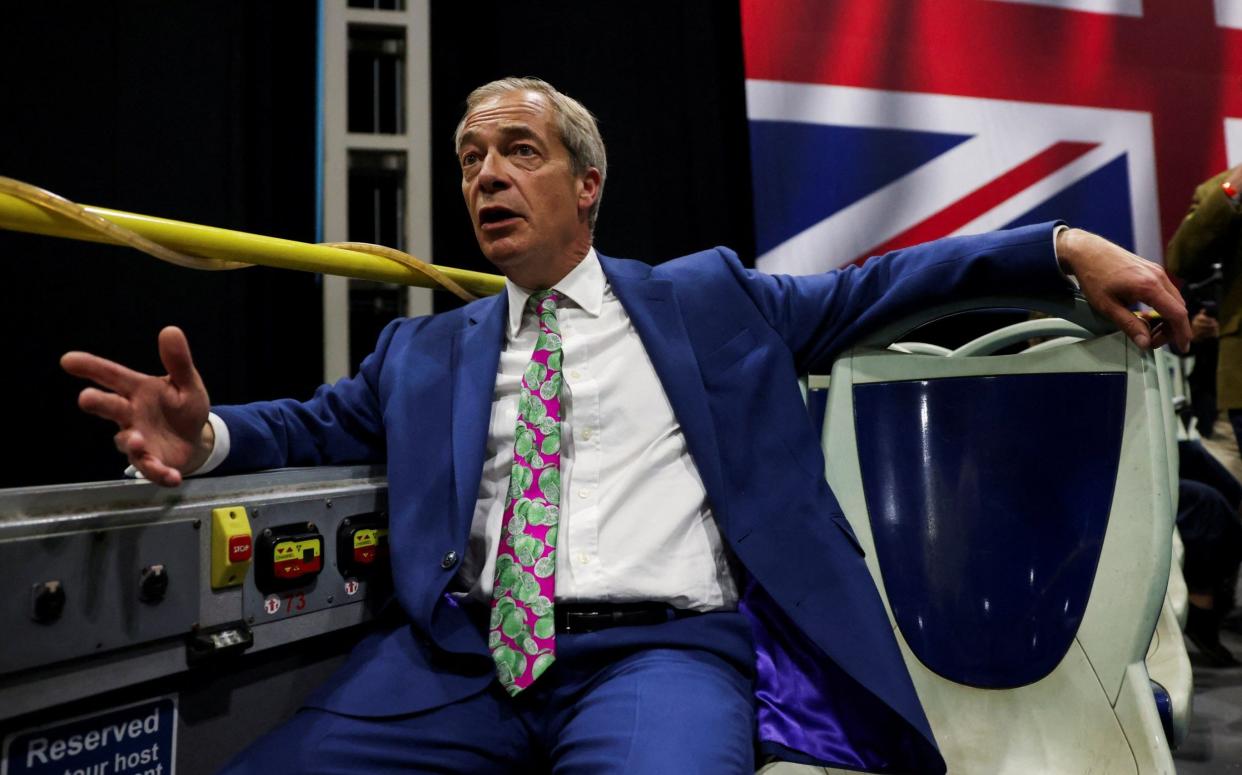Has Nigel Farage stumbled at the last hurdle? Our writers give their verdicts

One party has transformed the general election race, with Nigel Farage announcing several weeks ago that he would not only stand as a Reform UK candidate but would lead it for the next five years. The polls moved quickly in the days that followed with his party rising up the rankings. Now, however, there is doubt over its state in the final week of campaigning. Have Farage and Reform UK bungled it, allowing a slew of stories regarding candidates to dominate the narrative, or is this an exaggerated crisis?
Two of our contributors – Patrick O’Flynn and Henry Hill – give their opinion below. The former argues that we might be set for a surprise Reform surge, with shy voters turning out in numbers, while the latter says Farage has allowed his party to slip out of the overton window by failing to swiftly deal with the accusations. Read their views below.
Conventional wisdom among the punditry has it that Nigel Farage’s Reform party are stumbling in the home straight and as a result are likely to undershoot expectations at Thursday’s general election.
Who knows? It might be true. A combination of Farage’s controversial take on the war in Ukraine and prejudiced utterances by various of his party’s followers may scare away some of the more nervous backers won over by Reform during the campaign. That, combined with the party’s inexperience at getting out the vote on polling day, may lead it to only see a couple of MPs elected. Or even none. For you can’t rule much out in this election and first-past-the-post is famously cruel to smaller parties.
And yet it is at least as likely that the opposite will occur. The stunning victory of Marine Le Pen’s party in the first round of the parliamentary election in France could remind millions of British voters that they too are heartily sick of establishment politics-as-usual. They may also reflect that while the Tories deserve to be ejected from power, Labour has offered nothing in the campaign to merit their support.
They may find themselves agreeing with Farage that Reform’s surge has been the stand-out story of what was otherwise shaping up to be the most tedious and underwhelming election in living memory. There may also be a “shy Reform voter” factor leading pollsters to understate support for the insurgent Right-wing party. And the attempt by establishment parties and media to exploit bigoted comments by a few Reform candidates and activists to depict the entire outfit as racist may simply increase the numbers of those determined to vote for the party who decide to fly under the radar.
Individual polls can produce eye-catching figures, but overall the average Reform poll rating since the furore over Farage’s Ukraine comments erupted has hardly changed.
Farage’s instinct from the off has been that making this election about immigration will maximise his party’s vote. The Tories were supposed to halve it but trebled it instead. And they failed for half a decade to “stop the boats”. Labour meanwhile, has convinced almost nobody that it would do any better.
It was anger about uncontrolled mass immigration that fuelled Marine Le Pen’s victory in France this weekend. It also fuelled the Brexit referendum vote back in 2016, especially in deprived areas. If reports start coming through by the middle of Thursday of unusually high turnouts at polling stations situated in working class “Red Wall” constituencies then don’t bet against Team Farage confounding the predictions of those currently claiming Reform peaked too early in this campaign.
We won’t know until Friday morning whether, or to what extent, the abject state of Reform UK’s campaign has cost it an extraordinary opportunity to make the parliamentary breakthrough Ukip never quite managed.
But we already know that Nigel Farage has grossly mishandled this campaign, because he has managed to fortify the cordon sanitaire between his party and the Conservatives.
A month ago, it seemed very likely that whether or not to strike a deal with Farage would be a major fault line in the looming Tory leadership contest; last month’s ConservativeHome survey found a majority of party members surveyed favoured offering him the Conservative whip.
Now? Well, we shall find out what the activists think soon enough. But the past four weeks have so toxified Reform that, behind the scenes, leadership hopefuls are quietly reassuring people that any arrangement is off the table.
That will not displease Farage’s angrier supporters, who want to see the Tory party smashed to pieces. But the man himself ought to know better: in our system, any hope of profoundly re-ordering the Right involves some accommodation with its dominant party.
Farage used to know this. As leader of Ukip, he recognised that he was at his most effective when giving the Conservatives a means to do something about him – most obviously, calling the EU referendum. He also recognised the vital importance of keeping his party respectable, both for its own sake and to maximise its influence on the rest of the political system. This effort was sometimes patchy, but it was made.
What a difference ten years makes. Farage started out blaming a vetting company for letting him down when the press started turning up problematic candidates. Yet where the old Farage would have swiftly kicked them out, the new one has inexplicably resisted doing so.
Perhaps he will win in Clacton, and pick up a couple of other seats elsewhere. But with the Conservatives facing a moment of historic vulnerability, he may long regret allowing himself to fall out of the overton window.

 Yahoo News
Yahoo News 
